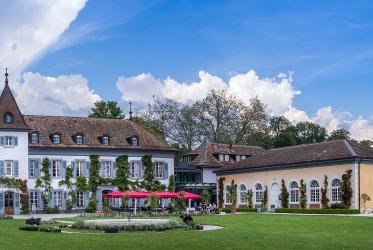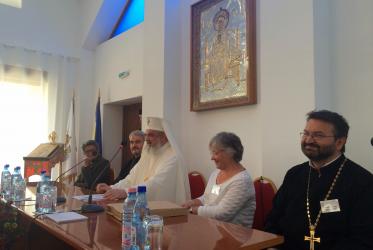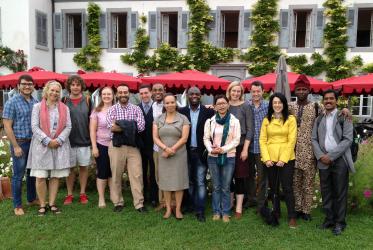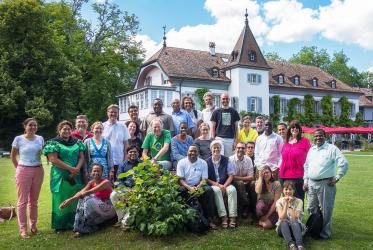Displaying 161 - 180 of 193
05 February 2016
Jürgen Moltmann leads ecumenical reflections in Geneva
14 January 2016
Edward Dommen receives Colladon award for A Peaceable Economy
14 December 2015
Basel University honors Ghanian Methodist theologian
09 December 2015
Ioan Sauca is awarded an honorary doctorate by Romanian university
05 November 2015
Bossey students combine academics with global relationships
21 October 2015
Panel revisits Dietrich Bonhoeffer’s ecumenical legacy
05 March 2015
Understanding justice and peace as Christian pilgrims
15 January 2015
Water network develops a theological framework for water justice
12 December 2014
Apply now: Academic courses at Ecumenical Institute in Bossey
13 November 2014
Young theologians explore ways of furthering ecumenical formation
16 September 2014
WCC commission leadership selected
13 August 2014
Addressing ecology, theology and justice in practice
01 July 2014









